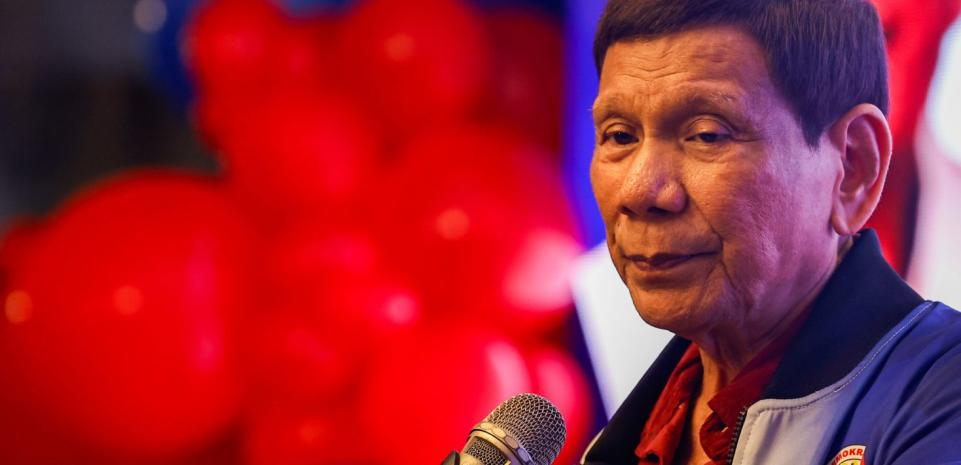
Recently, the International Criminal Court (ICC) has brought charges of crimes against humanity against former Philippine President Rodrigo Duterte, accusing him of involvement in at least 76 killings during his tenure as president and earlier as the mayor of Davao City. The case has drawn widespread attention due to Duterte’s notorious "war on drugs" policy, which supported violent actions against drug-related crimes. These charges are directly linked to his campaign against illegal drugs.
Duterte's Murder Charges
The ICC accuses Duterte of authorizing and personally participating in violent acts against individuals suspected of drug-related crimes. According to the charges, Duterte was involved in the deaths of at least 19 people during his tenure as mayor of Davao City from 2013 to 2016. As president from 2016 onwards, the violence escalated. Between 2016 and 2017, during what has been described as "targeted clean-up operations," Duterte allegedly caused the deaths of 14 individuals. Between 2016 and 2018, in further "clean-up" operations, about 43 people were killed.
These accusations not only involve Duterte’s personal actions but also his authorization and orders to government agencies and police to engage in violence as part of the crackdown on crime. The ICC prosecutors, in a 15-page indictment submitted to the court, described in detail how Duterte was not only aware of but also actively involved in planning and ordering these violent acts.
Duterte’s Response
Duterte has consistently denied these allegations. Even while serving as president, he publicly insisted that he did not authorize extrajudicial killings. In fact, he frequently threatened drug suspects and encouraged police to use deadly force if suspects resisted arrest or posed a threat to law enforcement. However, his statements and actions appeared to lend support to the violent actions taken by police and other officials.
Duterte and his legal team have not made an immediate public response to the detailed charges, but domestically, many of his supporters argue that these accusations are politically motivated. They believe the current president, Ferdinand Marcos Jr., is using the case to weaken Duterte’s influence, viewing the prosecution as part of a broader political strategy.
Court Hearings and International Reaction
Duterte was arrested by Philippine authorities in March of this year under an arrest warrant issued by the ICC and was subsequently transferred to a detention facility in The Hague, Netherlands. While he still retains support from a portion of the Philippine population, his political opponents see his detention as a way to hold him accountable for the actions taken during his "war on drugs."
The trial, which was originally scheduled to begin in July, has been delayed due to legal arguments put forth by Duterte’s lawyers, who claim he is unfit to stand trial due to health concerns. Despite this, the ICC has insisted on moving forward with the case, affirming that all evidence will be thoroughly examined.
The case has sparked significant international attention, particularly within the Philippines, where debates over Duterte’s "war on drugs" continue. Supporters argue that his tough measures effectively reduced drug crime and protected public safety, while opponents assert that his approach violated the rule of law and human rights, leading to the deaths of many innocent people.
Jurisdiction and Controversy
Another major point of contention in Duterte’s case is whether the ICC has the jurisdiction to prosecute him. The Philippine government formally withdrew from the ICC in 2019, which has led many of Duterte's supporters to question the legitimacy of the court’s intervention. However, the ICC maintains that the Philippines' withdrawal does not absolve Duterte from accountability, especially in cases involving grave violations of international human rights law.
Duterte's supporters also argue that the ICC's investigation and prosecution are unwarranted interventions in the internal affairs of the Philippines, accusing the Marcos government of colluding with Western countries to politicize the legal process. On the other hand, some international observers argue that this case highlights the complex relationship between national sovereignty and international law.
Conclusion
The charges against Duterte for crimes against humanity are far from a simple criminal case; they represent significant ethical and legal challenges faced by governments in their pursuit of justice and law enforcement. Regardless of the outcome of the trial, Duterte's presidency will remain a focal point in global discussions about anti-drug policies, judicial fairness, and human rights protections. Whether the ICC's actions will push the Philippines and other countries to prioritize human rights and the rule of law in the future remains an open question.

Driven by the Trump administration's push to relax financial regulations and the recovery of investment banking business, the market value of the six major banks in the United States has cumulatively increased by approximately 600 billion US dollars by 2025.
Driven by the Trump administration's push to relax financia…
On Christmas evening, U.S. President Trump posted on social…
According to multiple foreign media reports, the recent fin…
The middle class, once regarded as the cornerstone of Ameri…
On December 19th local time, the US military launched a lar…
The Boxing Day sunshine should have cast a false glow of pr…